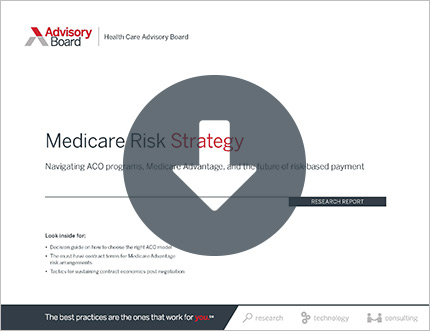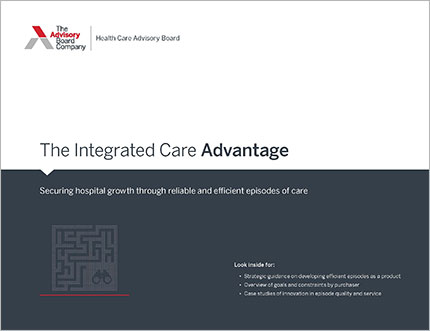Auto logout in seconds.
Continue LogoutDespite the predictions of many pundits last year, the Affordable Care Act's (ACA) exchanges have not imploded—but analysts are raising red flags all over again in light of the Trump administration's plans for the 2019 open enrollment period.
How 'silver-loading' helped save the ACA's exchanges in 2018
Shortly after President Trump was sworn into office in 2017, the administration took a series of steps that, according to analysts, could have led to sharp premium increases and enrollment decreases in the exchanges. The administration shortened the ACA enrollment period from 90 days to 45 days, cut outreach spending, and—perhaps most controversially—ended the law's cost-sharing reduction (CSR) payments, which were intended to lower copayments and deductibles for exchange enrollees with annual incomes below 250% of the federal poverty level.
Despite the pundit's warnings, though, exchange sign-ups during the 2018 open enrollment period declined by only 3.3%, from 12.2 to 11.8 million.
So what happened? Insurers found a creative way to respond to the end of CSRs. Rather than simply raising the cost of all ACA health plans—which are tiered into "bronze," "silver," "gold," and "platinum" plans that offer different levels of benefits—most insurers packed CSR-related premium rate increases into just silver-level plan premiums.
That practice, known as "silver-loading," took advantage of a quirk in the ACA: The law uses the premiums for silver-level plans to determine the amount of federal subsidies available to individuals with annual incomes below 400% of FPL. As a result, when premiums for silver plans rose sharply, federal subsidies rose along with them.
According to Modern Healthcare, about 83% of individuals who signed up for an exchange for the 2018 coverage year qualified for federal subsidies and thus were protected from the premium rate hikes. Further, the higher subsidies made higher-value gold plans more affordable, and in some cases, made it possible for individuals to purchase lower-value bronze plans at no out-of-pocket premium costs.
The downsides of silver-loading
Although experts credit silver-loading with helping to stabilize the ACA's exchanges this year, the practice did not resolve all of the law's problems. Millions of people who did not qualify for federal subsidies felt the full effects of premium increases, which averaged more than 30% for federal exchange plans.
Erin Trish, associate director of health policy at the University of Southern California's Schaeffer Center, said the result is "a weird mix of having a relatively persistent subsidized market, coupled with only the sickest nonsubsidized enrollees, which is not the way anyone would design this to work."
Experts also warn that consumers who switched from silver-level plans to zero-premium bronze plans, which Modern Healthcare reports have higher deductibles and limited to no cost-sharing, could face higher out-of-pocket costs when they seek medical care.
But the biggest problem facing silver-loading might be the Trump administration. According to the New York Times' "The Upshot," in a call with reporters on April 9, CMS administrator Seema Verma said her administration was considering banning the practice. If that occurred, "The Upshot" reports, "consumers in the (ACA)-compliant market will have a harder time finding an affordable plan."
Further challenges facing the 2019 exchanges
Experts also say other policy changes coming from the Trump administration could risk destabilizing the exchanges. For instance, the administration has expanded the pool of consumers who can remain uninsured or underinsured in 2019 and not be subject to the ACA's individual mandate penalty. (That penalty will essentially go away for all consumers in 2020.)
Further, the administration in 2019 will allow grandfathered plans that predate the ACA to remain in place for another year. It also is looking for ways to expand access to short-term and association health plans. Those plans typically have lower premiums, but cover fewer health services. Experts have warned the availability of such plans could prompt younger, healthy enrollees to leave the exchanges, which could cause exchange premiums to rise further.
John Graves, an assistant professor of health policy at Vanderbilt University, points to Tennessee as a possible indicator of what might happen if such plans become more commonplace. Tennessee regulators have allowed a farm bureau to offer plans that are not subject to ACA coverage rules, and, according to "The Upshot," the bureau plans have attracted more health consumers, leaving more sick enrollees in the state's exchange pool.
According to Modern Healthcare, a shift back toward higher uninsured and under-insured rates would have ripple effect that, ultimately, would increase the amount of uncompensated care at hospitals (Livingston, Modern Healthcare, 4/11; Sanger-Katz, "The Upshot," New York Times, 4/11).
Webcon series: How to modernize cost control and growth playbooks in a changing market
Hospital and health system leaders face newfound uncertainty following the political upheavals of the past several months. Tune in to our webconference series and hear the most up-to-date analysis on the future of health care reform and get our latest guidance on how hospital and health system leaders should proceed amid uncertainty.
Don't miss out on the latest Advisory Board insights
Create your free account to access 1 resource, including the latest research and webinars.
Want access without creating an account?
You have 1 free members-only resource remaining this month.
1 free members-only resources remaining
1 free members-only resources remaining
You've reached your limit of free insights
Become a member to access all of Advisory Board's resources, events, and experts
Never miss out on the latest innovative health care content tailored to you.
Benefits include:
You've reached your limit of free insights
Become a member to access all of Advisory Board's resources, events, and experts
Never miss out on the latest innovative health care content tailored to you.
Benefits include:
This content is available through your Curated Research partnership with Advisory Board. Click on ‘view this resource’ to read the full piece
Email ask@advisory.com to learn more
Click on ‘Become a Member’ to learn about the benefits of a Full-Access partnership with Advisory Board
Never miss out on the latest innovative health care content tailored to you.
Benefits Include:
This is for members only. Learn more.
Click on ‘Become a Member’ to learn about the benefits of a Full-Access partnership with Advisory Board
Never miss out on the latest innovative health care content tailored to you.


